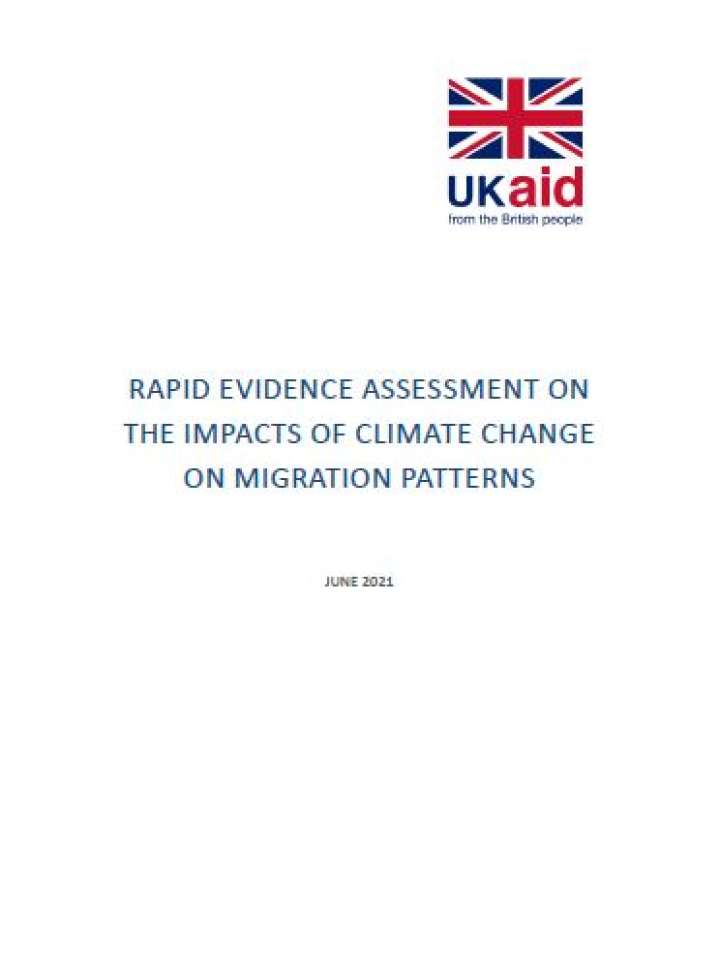Rapid evidence assessment on the impacts of climate change on migration patterns
This rapid evidence assessment (REA) synthesises findings from 273 quantitative and qualitative studies published between 2005 and 2021 on the relationship between climate change and migration, with particular attention to small island states, the Bay of Bengal, East Africa, and the Sahel. The overarching question guiding this analysis is: What are the current and likely future impacts of climate change on migration and displacement?
The authors consider:
- how climate change is affecting and likely to affect patterns of migration;
- how different countries and regions are affected and likely to be affected;
- confidence in existing estimates and projections of climate change-related migration.
The REA finds that:
- Climate-related shocks can contribute to increases and decreases in migration, and there is no upward trend in weather shock-related migration.
- There is little evidence of existing impacts of long-term climatic and related changes on migration.
- The is strong evidence that adaptations to climate-related shocks and hazards can reduce migration pressures, but that ‘maladaptation’ contributes to displacement and migration.
- There is strong evidence that perceptions and narratives of climate change, weather shocks and local environments affect migration practices and decisions.
- Poverty-affected individuals and households are particularly affected by both migration pressures and barriers to movement, and young people are the most likely to move in response to climatic pressures.
- There are no rigorous global estimates of the number of people displaced by or migrating in response to weather shocks or climate change, and high-end projections of future climate-related migration are not considered credible.
Explore further
